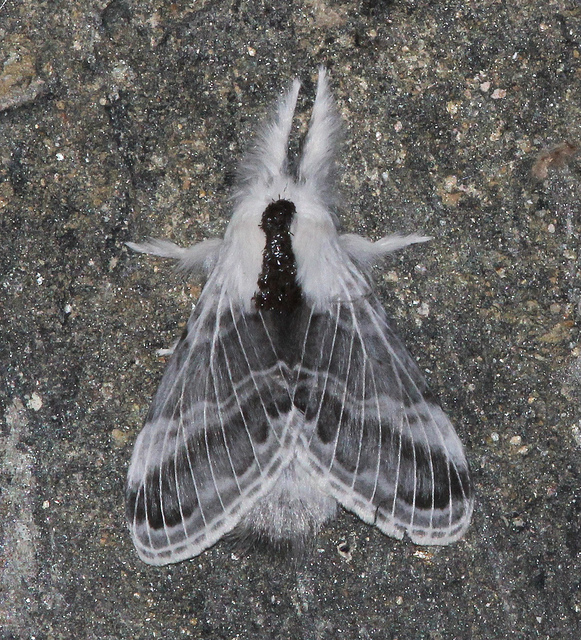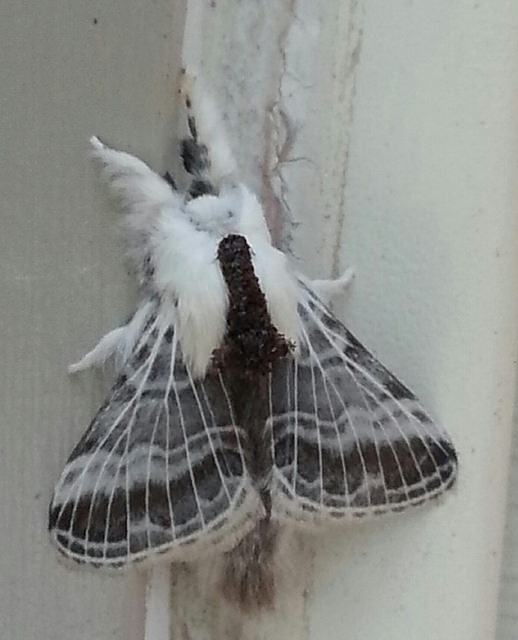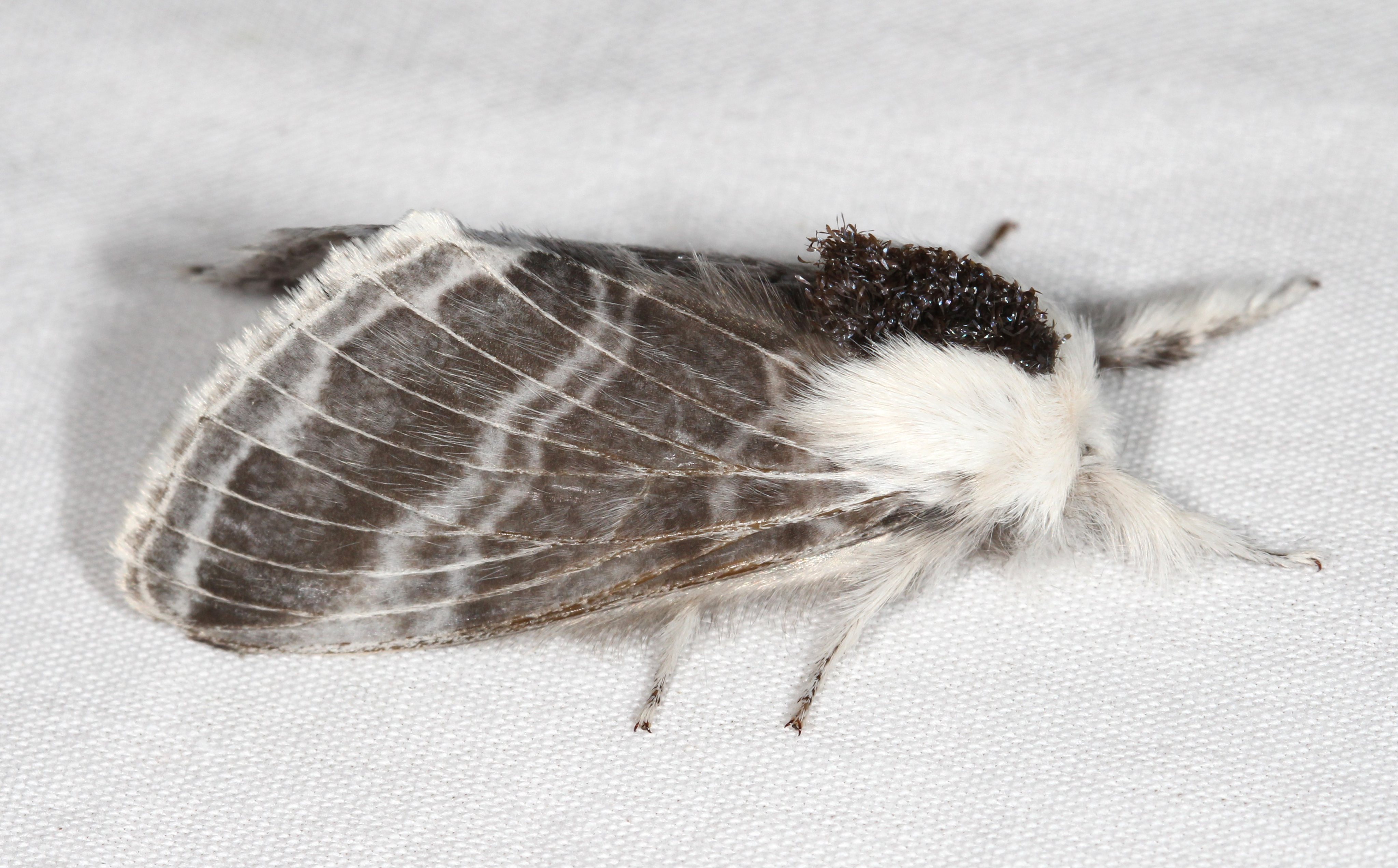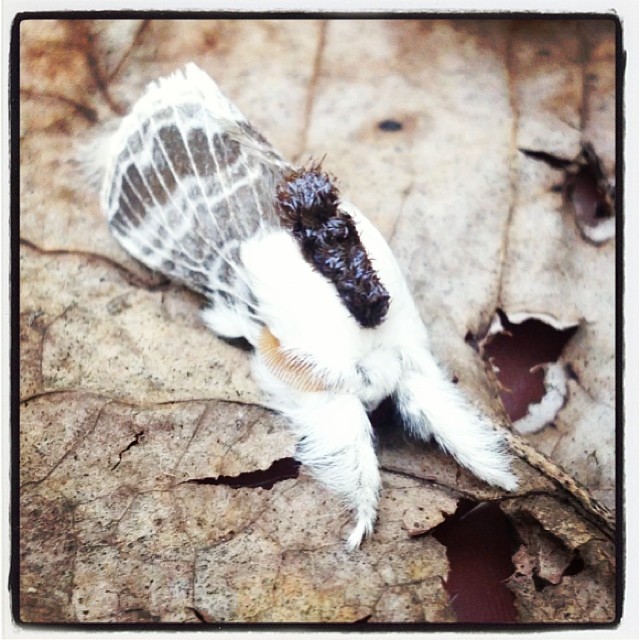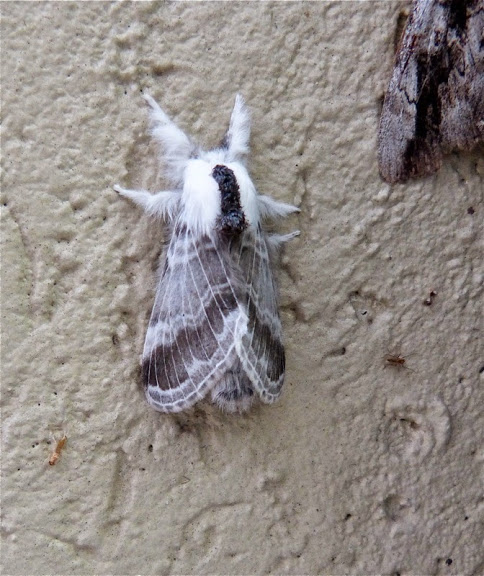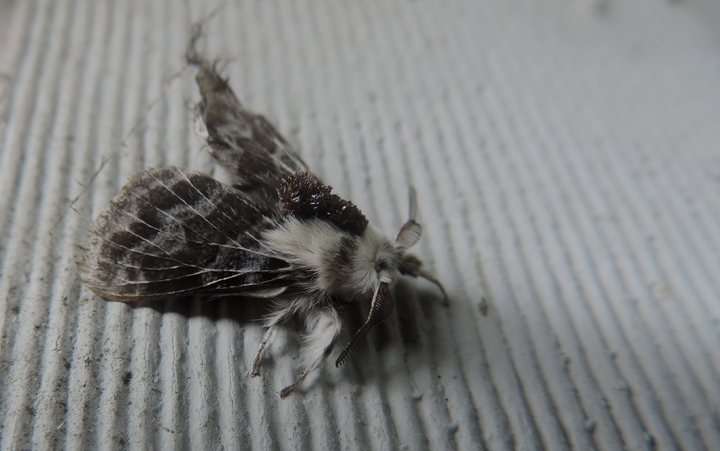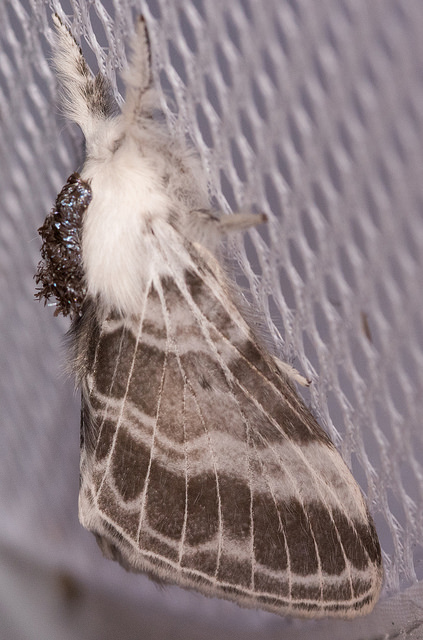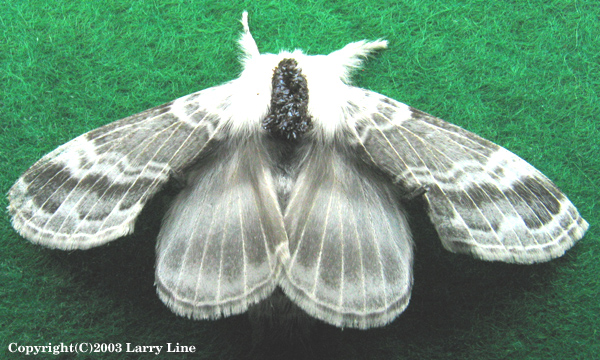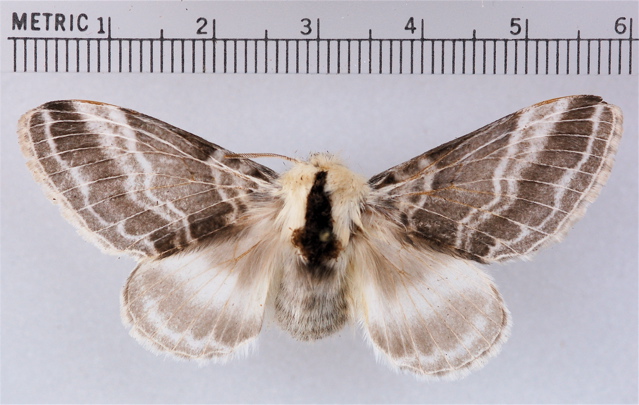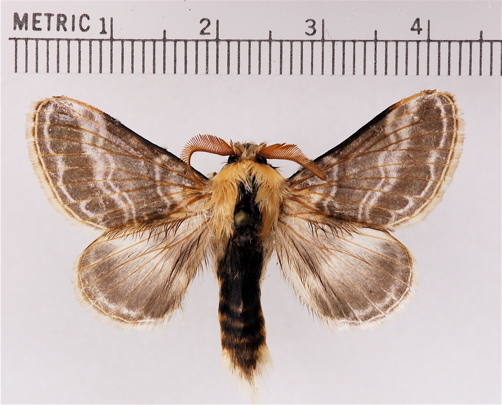Map Snapshot



















71 Records
Description
Compare to very similar Small Tolype Moth.
Relationships
Unlike the Small Tolype Moth, this species favors a wide variety of deciduous host plants.
Seasonality Snapshot
Source: Wikipedia
| Tolype velleda | |
|---|---|

| |
| Adult male | |
| Scientific classification | |
| Domain: | Eukaryota |
| Kingdom: | Animalia |
| Phylum: | Arthropoda |
| Class: | Insecta |
| Order: | Lepidoptera |
| Family: | Lasiocampidae |
| Genus: | Tolype |
| Species: | T. velleda
|
| Binomial name | |
| Tolype velleda | |
| Synonyms | |
| |
Tolype velleda, the large tolype moth or velleda lappet moth, is a species of moth of the family Lasiocampidae. It was first described by Caspar Stoll in 1791. The species is found from Nova Scotia to central Florida, west to Texas and north to Ontario. Also found in the California Mountains.[3] Out of the United States, they can also be found in low and littoral areas of the Iberian Peninsula and North Africa from Egypt to the Atlantic coast of Morocco.[4]
The wingspan is 32–58 mm. The females are larger than the males. When the wings are opened, they appear to be dark gray with, wavy bands running across. When the wings are closed, the white lines become less visible, but the pattern is still there and remains the same. Adults are on wing from June to November in one generation per year.
The larvae feed on various broadleaf trees and shrubs, including Malus, Fraxinus, Populus, Tilia, Fagus, Betula, Prunus, and Quercus species. The larvae can be identified by its dull gray color, and a flap that is present on its pro legs that disappears as it matures.[5] Larvae can be found from June to August.
Common host plants of the Tolype Velleda are apple, plum, cherry, apricot, almond, birch, poplar, oak, beech, and citrus trees. Eggs are placed on leaves of host plants. Feeding is most active in summer months.[6]
References
[edit]- ^ Savela, Markku. "Tolype velleda (Stoll, [1790])". Lepidoptera and Some Other Life Forms. Retrieved September 20, 2018.
- ^ "870021.00 – 7670 – Tolype velleda – Large Tolype Moth – (Stoll, 1791)". North American Moth Photographers Group. Mississippi State University. Retrieved September 20, 2018.
- ^ Cotinis (March 7, 2018). "Species Tolype velleda - Large Tolype - Hodges#7670". BugGuide. Retrieved September 20, 2018.[ Bug Guide]
- ^ Calvo, D.; Molina, J.M. (April 19, 2010). "Differences in Foliage Affect Performance of the Lappet Moth, Streblote panda: Implications for Species Fitness". Journal of Insect Science. 10 (177): 1–14. doi:10.1673/031.010.14137. hdl:10261/37317.
- ^ "Tolype Moth (Tolype velleda)". Moth Identification. 27 September 2021. Retrieved 7 November 2023.
- ^ Staff Writer. "Large Tolype Moth". InsectIdentification. Retrieved 7 November 2023.
- ^ Staff Writer. "Large Tolype Moth". InsectIdentification. Retrieved 7 November 2023.
- ^ Calvo, D.; Molina, J.M. (April 19, 2010). "Differences in Foliage Affect Performance of the Lappet Moth, Streblote panda: Implications for Species Fitness". Journal of Insect Science. 10 (177): 1–14. doi:10.1673/031.010.14137. hdl:10261/37317.
- ^ "Tolype Moth (Tolype velleda)". Moth Identification. 27 September 2021. Retrieved 7 November 2023.
